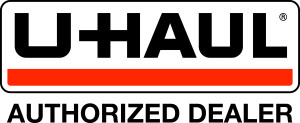6-8 Weeks Before Moving:
This is a great time to begin the details of your move.
1.- Make a list of items you plan on moving and items you wish to take to storage. Make a list of items to be handled by a mover (if you plan on using one) and those you will handle yourself. Get rid of items you don’t need – have a garage sale, give items to friends, donate items to local charities.
2.- If you need help packing, loading or even driving, research and select a local moving helper.
3.- Many moving expenses are tax deductible, so maintain a file with important information and receipts for moving related expenses.
4.- If moving to a new community, its great to find out about schools, parks, recreation, and community programs prior to your arrival. Contact the local Chamber of Commerce and/or Visitor’s Bureau.
5.- Prepare to transfer medical, property, fire and auto insurance through your insurance agent.
6.- Place all your medical records in a safe place. Do not forget prescriptions, vaccination records and other important information.
4-5 Weeks Before Moving:
1.- If you are planning to do some part of the packing, start collecting moving and packing supplies. These can be purchased from online and shipped directly to you or picked up at our store.
2.- Contact the post office and fill out a US postal change of address form and provide your new address to your telephone company, trash company, cable / satellite, water, electric company, internet provider, insurance companies, banks and financial institutions, clubs, local government agencies and any other utility companies.
3.- Register your children in their new schools. It would be a good idea to involve kids in the moving process. They can help pack their toys and items from their room.
4.- Contact utility companies – electricity, gas, phone and others for disconnection after your scheduled move out. And call ahead to have utilities connected to your new home.
5.- If you have pets make arrangements for transportation. Find out if there are specific requirements for pet ownership in your new township. Also obtain the veterinarian records.
2-4 Weeks Before Moving:
1.- If you have young children, you might want to arrange for a baby-sitter on moving day to ensure they remain safe during the loading process.
2.- Remember to return library books and anything you have borrowed. Collect items you have loaned out.
3.- You may NOT want to pack your valuables in the moving van, think about taking them with you.
4.- Plants – Do you have a safe way to transport your plants? Plants could be given to friends or even a local charity.
5.- If you are traveling by car, you may want to get your car serviced prior to departure.
6.- Start packing items you don’t currently need. If renting a storage unit, determine which items go to storage and which items go to your new home.
7.- Don’t forget anything in basements, attics, and closets. Don’t forget about clearing out safety deposit boxes.
8.- Disassemble your computer and backup important computer files. Avoid exposure to extreme temperatures.
9.- Dispose of flammable items like fireworks, cleaning fluids, matches, acids, chemistry sets and other hazardous items.
1 Week Before Moving:
1.- Make sure your items are labeled: ‘fragile’, ‘load first’, ‘load last’, and ‘do not load’. This is important to ensure the safety of your items. U-Haul sells speciality tape that works perfectly for labeling your boxes.
2.- It is important to empty, defrost and clean your refrigerator at least a day before moving.
3.- Make plans flexible, make arrangements in case of delays. Confirm travel arrangements and keep items you will need while the rest of your belongings are in transit.
4.- Pack a box separately with the things you will need immediately upon arriving at your new home. For example- snacks, disposable plates and cups, bathroom items and trash bags.
Moving Out Day:
1.- Thoroughly check your closets, drawers, shelves, attic, and garage to make sure nothing is left.
2.- Turn off all the switches and lock all doors and windows.
3.- Be around throughout the loading process. Inspect the premises and see to it that nothing is left behind.
4.- Be patient if you reach your new home before your mover.
Move-In Day And After:
While unloading, make sure there is no damage and no item is missing. Make sure utilities are connected. Carry traveler’s checks or cash for quick payments. Plan out placement of major items in your home. If moving to a new state, you will need to renew your driver’s license and revise your will and other legal papers. Locate the hospitals, police stations, and fire stations near your new home.
Packing tips
– Use strong boxes and containers that can be stacked.
– Fill boxes completely to keep them from collapsing and damaging belongings.
– Pack books and heavy items in small boxes for easier lifting.
– Put the heavy boxes on the bottom and the light ones on top.
– Purchase special boxes for dishes and fragile items.
– Label each box on several sides and indicate if it is fragile and what room it should go in.
– Disassemble furniture for easier moving and storage.
– Stand sofas on end, if possible.
– Take advantage of the tops of dressers and the like to stack boxes and other items.
– Stand mattresses on end and break down bed frames.
– All stored items should be clean of food stains and particles.
– Save money and room by using towels and blankets to wrap fragile items.
– Use wardrobe boxes to hang clothing; remember to fill the bottom of the wardrobe box with shoes, pillows, or other light items.
– Protect furniture with shrink-wrap, blankets, or pads to avoid damage.

